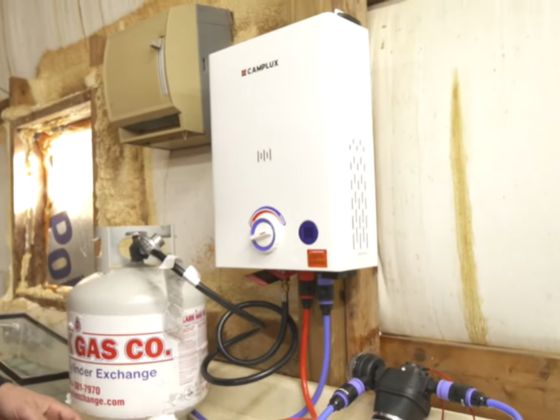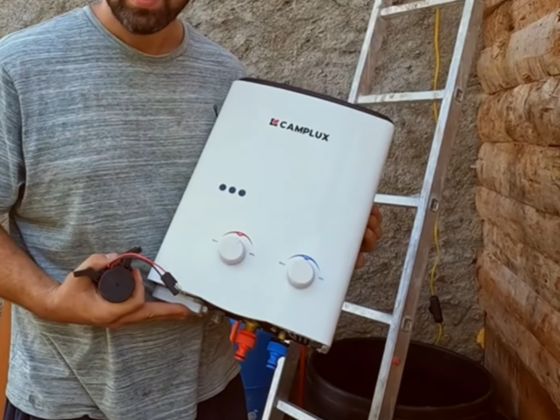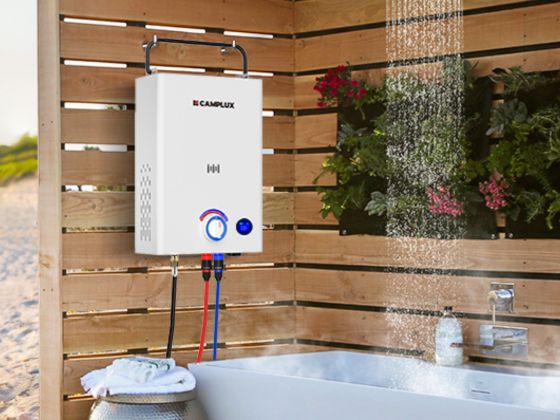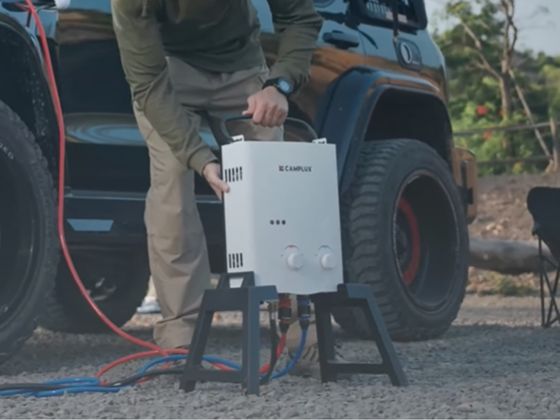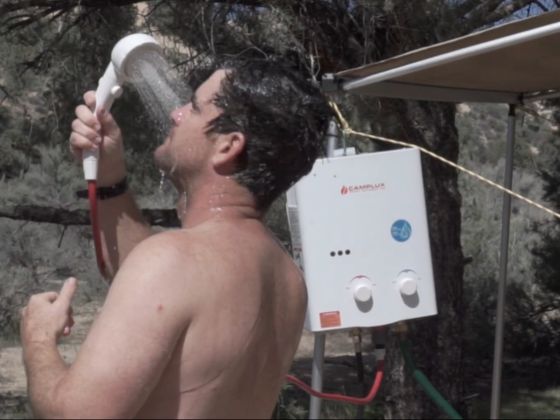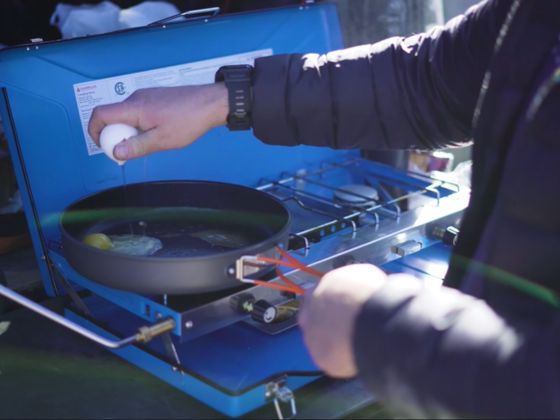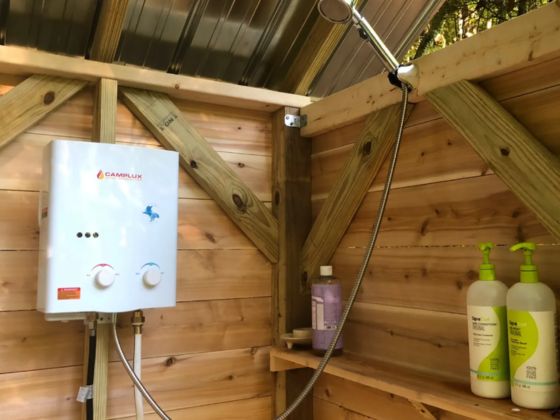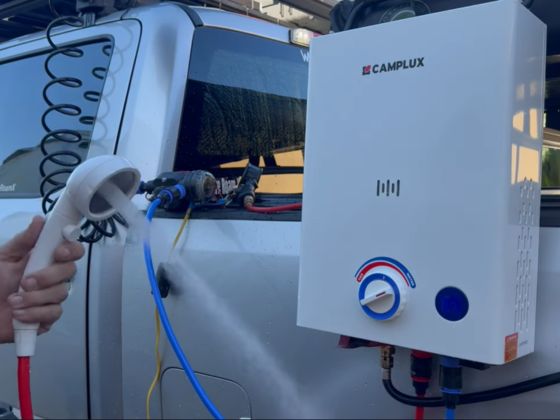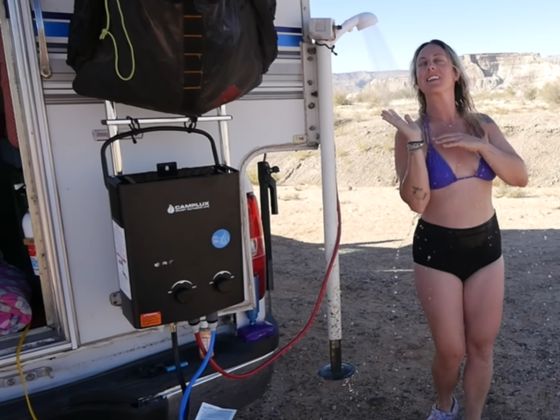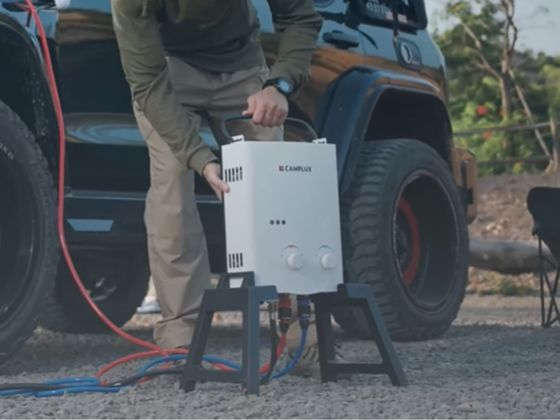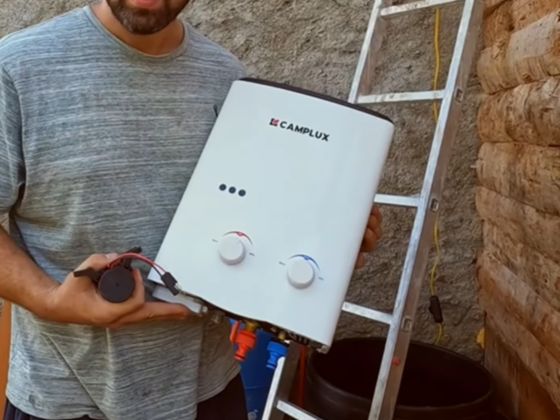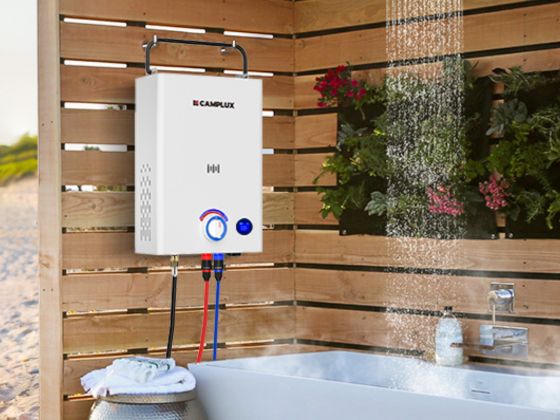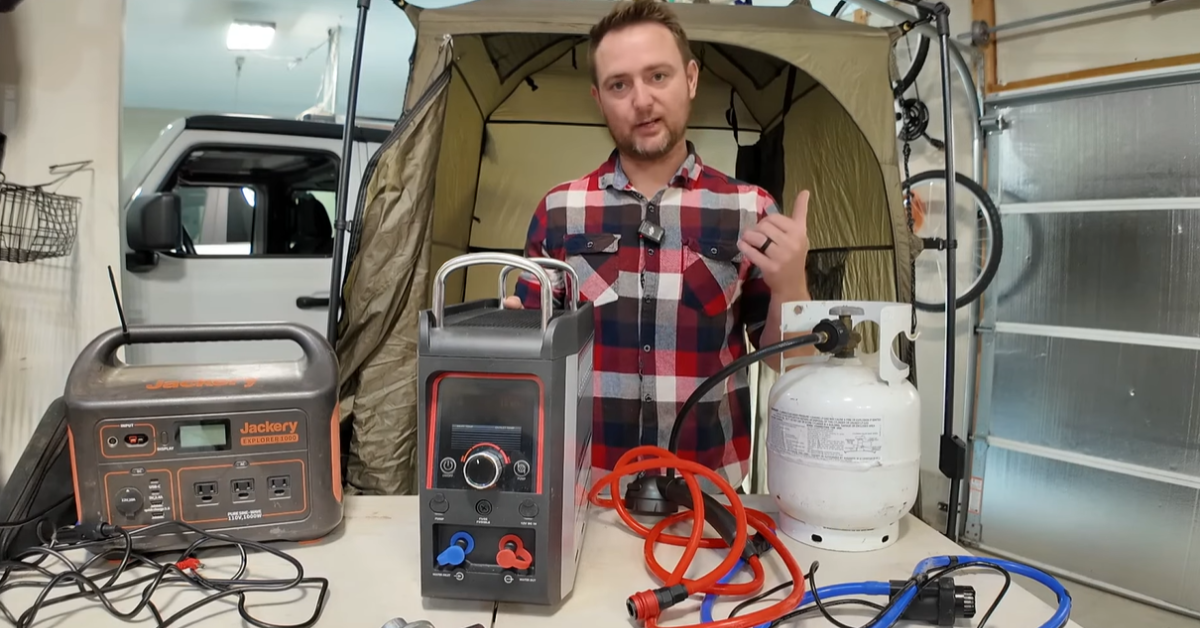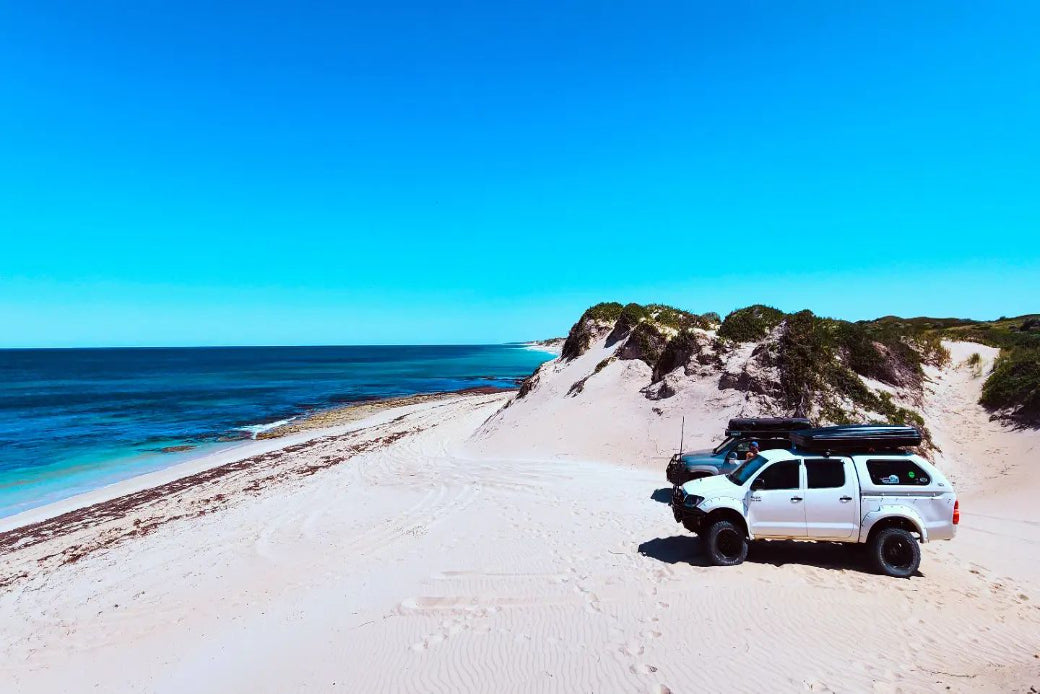Table of Contents
- What is a Camping Water Heater?
- Types of Camping Water Heaters
- Gas-Powered Camping Water Heaters (Propane and Butane)
- Electric Camping Water Heaters (Tank-Based)
- Immersion Electric Water Heaters
- How to Choose the Best Camping Water Heater
- Conclusion
What is a Camping Water Heater?
A camping water heater should be a device that gives out hot water no matter where you are. Whether you're staying in an RV, camping in the wild, on a road trip, or living off-grid, a camping water heater ensures you have hot water for showers, washing dishes, or even cooking. These heaters usually consume gas or electricity, some can use both, and there are some types of water heaters that are solar-powered. They come in different sizes and types, from 20 * 5 cm immersion water heaters to tank/tankless water heaters that give out hot water straight.
Types of Camping Water Heaters
Camping water heaters listed below are the most popular types that we found in the Australia market. Each with its own pros and cons, and we will try to give clear info for quick recognition.
1. Gas-Powered Camping Water Heaters (Propane and Butane)
Gas-powered camping water heaters are usually the first choice for campers, they’re durable, giving out hot water instantly, and quite portable.
How They Work:
- Fuel: These water heaters consume liquid propane or butane gas from the gas cylinder.
- Heating Process: The gas enters the burner's chamber inside the unit, where it is ignited. As water flows through the heat-exchanger positioned above the burner, it heats up instantly. This quick and efficient heating process makes these heaters suitable for various outdoor scenarios.
- Portability: Most gas-powered units are designed with handles or free-standing, making them ideal for camping trips.
Pros:
- Instant Hot Water: The biggest advantage of it is that they give out hot water in minutes.
- Easy to Carry: 70% of gas-powered camping water heaters tend to be lightweight, which is a must for outdoor enthusiasts. And some of them have some feature like a handle, a mounted fitting or even a cart as at any site.
- No Need for Electricity: These water heaters run on gas and batteries, so the cost will be much lower than those electric camping water heaters.
- Easy Assembling: The subject gas tankless water heater is a product that is highly developed and well-established. They are down to 3-5 different parts and after quick connecting, it will be on service.
Cons:
- Fuel Dependency: Gas-powered heaters require propane or butane tanks, so you’ll need to make sure you bring enough fuel and have refills available.
- Minimum Water Flow Requirement: Some models need a strong water flow to start up, which may not be ideal for some limited situations. In Camplux, most camping LPG water heaters can be kicked up by 3.0 PSI water pressure, which is much lower than typical household water pressure (usually around 40–60 PSI or 2.8–4.1 bar).
For many campers, a camping instant hot water heater powered by gas is the best option, as it’s reliable, fast, and doesn’t require access to electricity.
2. Electric Camping Water Heaters (Tank-Based)
Electric water heaters are another option. Since they rely solely on electricity, users need to ensure a stable power supply. These water heaters are the top choice for campers who care about their carbon footprint.
How They Work:
- Tank-Based: Feed the electric heaters with cold water, then the water inside will be heated by an internal heating element. The water is then available for use when the temperature reaches the setting.
Pros:
- Convenient: Electric heaters are easy to use, and there will be no gas leaking issue to worry about.
- Stored Hot Water (Tank Models): Tank-based heaters allow you to store a large amount of hot water.
Cons:
- Requires Power: Electric models need a power source, which means they’re not a top choice for those in remote areas or off-the-grid.
- Slower Heating Time: Compared to gas models, electric heaters take a while to heat the water.
- Not Easy to Fix: If we already on the road and, after a few days and several showers, the unit malfunctions for some reason, it’s not easy for us to bring it back on work—especially if we don’t have the tools for appliance repairs during the trips and have no clues on troubleshooting.
Electric water heaters can work for some campers, but many still prefer the efficiency of gas models for on-demand hot water and lower overall consumption.
3. Immersion Electric Water Heaters
Immersion Water heaters are small, portable devices that heat water by being submerged in a container. (Around 25cm * 5cm with a wire for charging)
How They Work:
- Heating Process: The immersion heater is placed directly into a water container. It heats the water around it using an electric heating element.
- Power Source: These heaters require a portable power station or any other stable power source to operate.
Pros:
- Compact and Lightweight: Immersion heaters are small and easy to carry, making them great for backpackers and those with limited space.
- Affordable: These heaters do not contain much technology and the heating process is simple, so the price is very low compared to other models.
Cons:
- Limited Capacity: Immersion heaters are only useful for heating small amounts of water, which makes them less suitable for group use. And the heating time depends on the inlet water temperature and the volume of different water containers; a small device might take a long while to heat up a 20-liter bucket.
- Melting: Campers used to take plastic containers to use with the immersion water heaters, but there comes a melting problem because the immersion water heaters heat up fast, and the rapid temperature rise may cause the contact surface to melt.
Though immersion water heaters are great for camping scenarios, the downside is that they can be difficult to handle.
How to Choose the Best Camping Water Heater
When it comes to selecting the right camping water heater, gas-powered camping water heaters are often the best choice. Here's why:
- Fuel Source: Consider whether you’ll have access to electricity or if you’ll be camping in a remote area. If you can get electrical power ensured, an electric water heater might be more convenient. However, if you’re camping in more places without electricity, a propane-powered water heater will be more suitable.
- Size and Portability: Camping water heaters come in various sizes; some heaters are very small and do not occupy any space, while others require accessories to be placed somewhere. Some are fixed to an area and consume power whenever they’re in use. Take a better look at the dimensions and choose the one that can fit your journey.
- Water Flow Rate: The water flow rate is a critical consideration, especially if you plan to take a shower. Higher flow rates provide more hot water per minute, but they may come with larger and heavier units. Choose a flow rate that balances your needs with the portability of the heater.
- Ease of Use: Look for a water heater with simple controls and easy ignition. Some models feature automatic ignition systems, making them more user-friendly. Also, check for additional features like temperature controls and safety features, such as automatic shut-off for overheating.
- Budget: Different models, features, and positioning determine the price. Many brands sell camping water heaters, and there’s a wide range of prices. Consider your budget and find the best for your needs.
Conclusion
For any camper looking to make their outdoor experience more enjoyable, a camping water heater is a must-have piece of gear. Whether choosing a gas-powered camping water heater for instant hot water or an electric model for use at powered campsites, there’s an option for every need.
There’s no best camping water heater for everyone. With step-by-step consideration, you will find the option that works best for you specifically.

